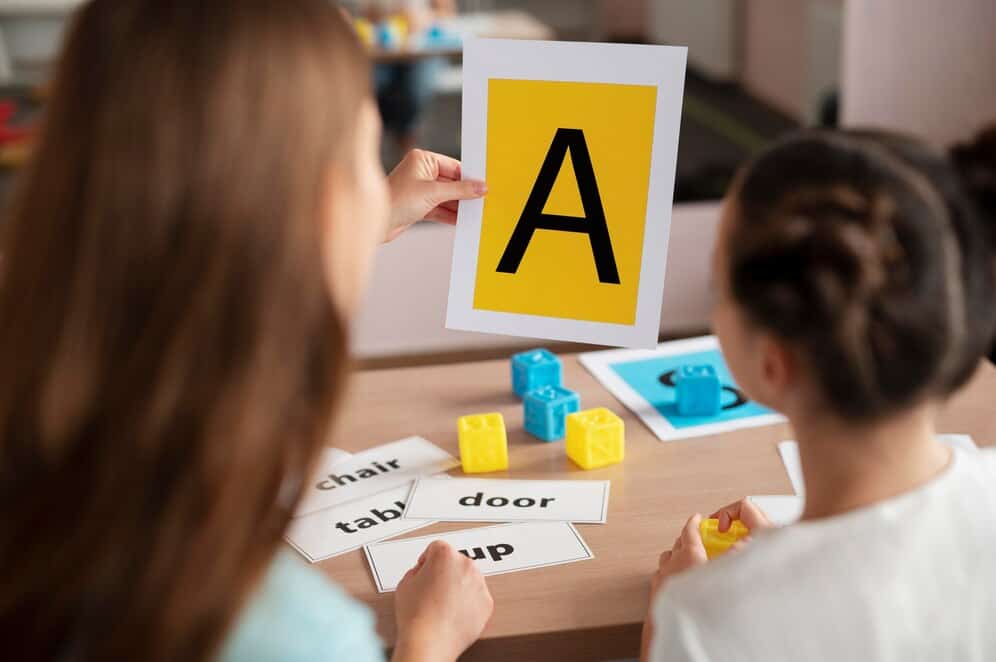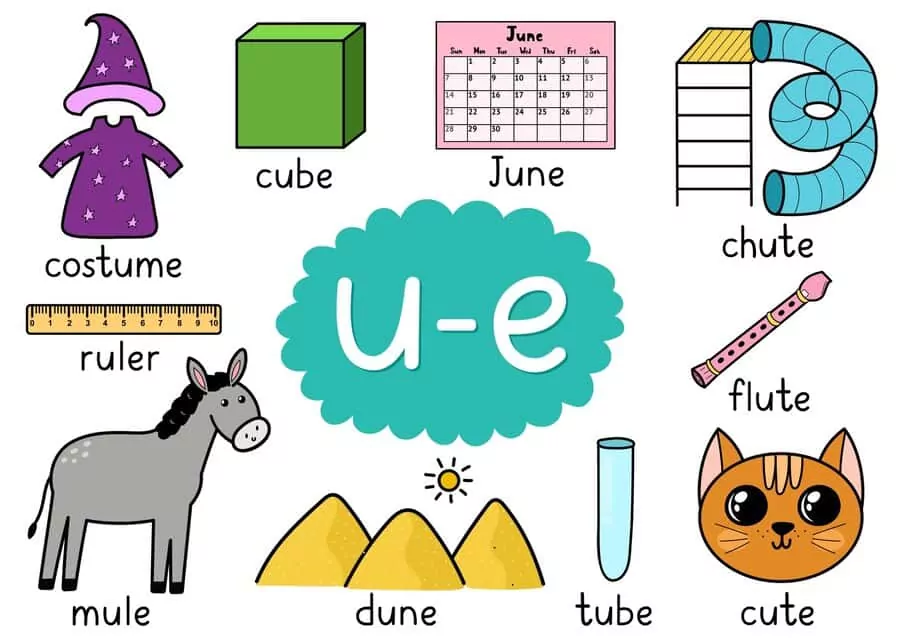
Great Literacy Skills: Learning English
The teaching of literacy is incredibly important in a child’s educational journey. Literacy skills provide the necessary foundation for being able to read and write.
Literacy skills encompass a large range of activities that aid in bringing clarity to your child’s ability to say, read, and recognise words. Literacy skills also help children evaluate texts through an array of methods.

Using techniques like phonemic awareness, vocabulary, spelling, and reading comprehension can encourage your child to thrive. Due to the wide range of factors that are incorporated into literacy skills, there are multiple ways to deliver this type of lesson to your child either at home or in the classroom.
Harnessing your child’s literacy skills will enable them to critically think and be creative with language in the future.
Literacy Skills: What is a Noun?
Nouns are a name for a type of word that is usually understood as being a person, a place, or a thing. There is a wide range of nouns and they aren’t simply singular, some are plural as well! Nouns are usually accompanied by another word known as an article. An article is a word like the or that.
Nouns are the most common words available as well. Coming from the Latin word or ‘name’, nouns are the object of a preposition and can be used to describe other nouns as well. An example of this would be ‘sea kayak’ When this occurs, they’re referred to as modifiers or adjuncts.
The best way to split up nouns though is between three groups: proper nouns, common nouns, and pronouns. Proper nouns are fairly easy to understand as they have particular rules which makes them easy to remember.
Proper nouns are names given to things like people or places. Companies, brands, and organisations would also be considered proper nouns. One way of distinguishing proper nouns is that they will always begin with a capital letter.
Common nouns are essentially every other noun that isn’t a proper noun. Some words that are nouns can be possessed. If someone owns something then an apostrophe is used to demonstrate that it belongs to something or someone. That could be Nathan’s shoes or the soldiers’ commander is marching.
Nouns can be singular or plural but the easiest way to make a noun plural is to simply add an ‘s’. So, the mountain becomes mountains, the book becomes books, and so on. Sometimes, it’s not as simple as adding an ‘s’ to the end of your word.
Words like kiss become kisses, the box becomes boxes. So, there are a few different plurals to take into consideration when working with plural nouns. These are known as irregular plural nouns. Knowing the different nouns can assist with the development of your child’s literacy skills and help them grow.
Literacy Skills: Phonics and the Alphabet
Phonics is one of the first things that your child will learn in school when being taught letter recognition and words. Phonics helps with the pronunciation of letters and recognising sounds which allow children to say more complex words in the future. Phonics is made up of different processes known as blending and decoding.
Decoding is recognition of separate or individual letters whereas blending is the combination of these decoded letters to make a word. This is one of the most important literacy skills that a child can learn. There are plenty of literacy skills activities that help deliver phonics lessons in a constructive and dynamic fashion that allows children to engage with the material.
Teaching children phonics can be as simple as lifting objects from your home and utilising them as a tool to prompt letters and words. This is also a great way of introducing the alphabet to your child.
Phonics and the alphabet are intrinsically linked and encouraging your child to learn the alphabet through phonics is setting them up for success.

Getting your child to write the letters down and sound them out is a perfect way of introducing phonics in a basic manner but there are plenty of activities that can be used to encourage this type of learning. Resources from around the home are an easy and accessible way to teach your child phonics.
There are plenty of interactive methods to illustrate alphabet sounds to your children who are learning to read and write as well as develop their literacy skills. Phonics is the perfect way for your child to learn how to read and write in a comprehensive way. It can be taught in classrooms or at home, and it is a great way to develop your child’s literacy skills and vocabulary.
Literacy Skills: Learning Difficult Words
If phonics is where you begin your learning of words and sounds, then there has to be a development of language skills. Learning tricker words is the perfect way for grammar and vocabulary to be advanced, and for there to be the development of their literacy skills.
This can be a daunting task for your child as words they have previously learned the sound for might be a little different when a different collection of letters are combined to make a different word. This is a great way of evaluating the understanding your child has garnered when learning phonics as well and serves to point out their weaker areas that you can help them with.
There are plenty of activities that help your children learn trickier words and implement them into sentences. Using techniques like ‘read it, make it, write it’ is a great way of reinforcing words that are more difficult, as repetition has been proven as an effective strategy for literacy skills.
This strategy can be done via magnetic letters and a whiteboard. Place the letters on the whiteboard to form a form or get your child to create one if they are capable of it.
You can then jumble the letters up and allow them to make the word with the magnetic letters. This gives them the ability to creatively and critically work out what the word is that they wish to make. Then, take these things away and get the child to simply write down the word on a piece of paper.
This is a great way of ensuring that your child has definitely understood the word and can spell it. If your child is advanced enough, test them to see if they can use that word in a sentence.
This technique is a great way of ensuring children have understood the word in question and are able to utilise it in language. These types of literacy skills aid with reading and writing, and comprehension of more complex words and texts.
Have you found this interesting? Come and check our articles about English: English Language Literacy Guide, Consonants and Vowels, Adjective Games: Fun with the English Language, Great Literacy Skills: Learning English, English Teaching Resources and Learning English- Literacy Games for Kids.
Why not subscribe to our LearningMole Library for as little as £1.99 per month to access over 1300 fun educational videos.


Leave a Reply